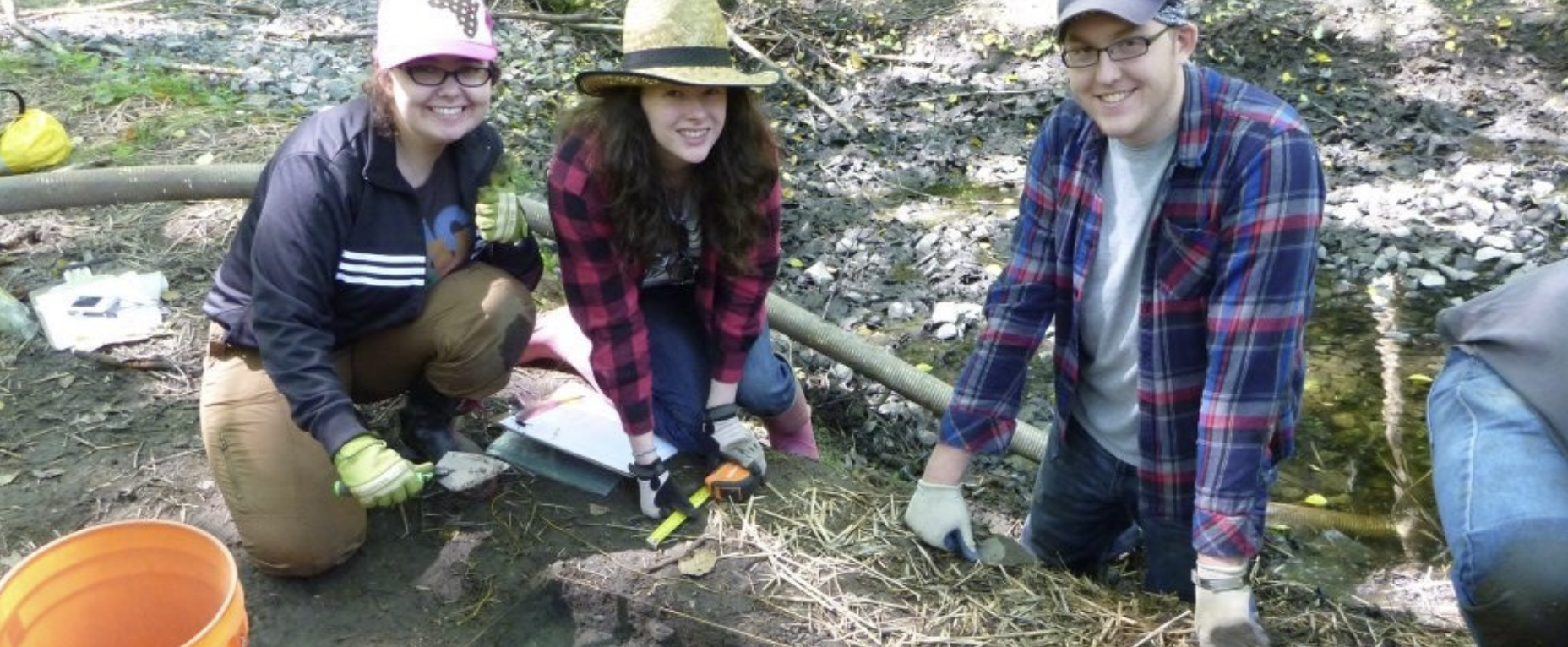Fieldwork

Location: Japanese Gulch
Season: July 7, 2025 to August 1, 2025
Deadline Type: Contact for Details
Program Type:
Field School
RPA Certified:
No
Project Director:
Dr. Alicia Valentino and Ashley Pickard M.A.
Project Description:
Edmonds College ran a successful archaeological field school in 2012 at Japanese Gulch in Mukilteo, Wash., and will be returning to this site in July 2025 for an exciting new season. Japanese Gulch developed alongside the Mukilteo Lumber Company, which began hiring Japanese workers in 1903. The community grew from 35 residents in 1903 to 100 by 1909, expanding further after the Crown Lumber Company purchased the mill. Japanese-American workers were vital to industries across the Pacific Northwest, including lumber, farming, and railroads (NWAA 2009, 14). Ethnographic accounts and archaeological evidence reveal a vibrant community with single-story family homes, a dormitory for 45 single men, a playground, a community hall, and a boys’ club (SWCA 2011, 13–14). Residents sourced goods from Japan or local merchants, utilized nearby resources, and shopped at the Crown Company Store (NWAA 2009, 55–56). However, the late 1920s economic downturn led to the Crown Lumber Company’s closure in 1930, causing residents to leave in search of work and marking the decline of Japanese Gulch. Join us in July to uncover more details about this community and their everyday lives. You will learn and practice standard archaeological field and lab skills necessary to work in cultural resources management careers.
Notes:
Location: Mukilteo, WA
Cost: $989.78 (tuition and fees) for Washington State Residents, $2,393.56 (tuition and fees) for non-Washington State Residents
The class will take place from July 7-Aug. 1, five days a week from 8:30 a.m. until 3:30 p.m.
All equipment will be provided, and students will be responsible for transporting themselves to/from the site with a packed lunch and snacks for the day (there are no close food options with the break time permitted).
There is an internship opportunity (Anthropology 298) available for students who have completed the Anth 270-275 course series, or for graduate students with previous field school experience. Please see website for application details and requirements (https://www.edmonds.edu/programs-and-degrees/areas-of-study/social-sciences-and-cultural-studies/anthropology/leaf/)
For more information, please email Ashley Pickard (ashley.pickard@edmonds,edu) or Alicia Valentino (alicia.valentino@edmonds.edu).
Project Size: 1-24 participants
Experience Required: No prior anthropology or archaeology experience is required. All students are welcome to enroll in Anthropology 270/271 (Archaeology Field Methods 270 and Archaeology Lab Methods). Students who have already taken Anth 270 may enroll in Anth 272/273 or 274/275 based on experience. This is a physical, hands-on class where students will learn field excavation techniques and lab processing.
Room and Board Arrangements:
Archaeology field school students can choose to live in the Edmonds College Residential Halls.
$150 application fee
$55 per day for a room (this covers rent, furniture, wifi, utilities, parking, and a single bedroom in an apartment with a full kitchen living room, and bathroom)
Financial Aid can be used to cover housing fees
Detailed about the residential halls and how to apply can be found at the Edmonds College Housing and Residential Life Website (https://www.edmonds.edu/student-services/housing-and-residence-halls/apply-now.html)
Academic Credit:
5 Credit Class Archaeology Field Methods and Archaeology Lab Methods ANTH 270 & ANTH 271; ANTH 272 & ANTH273; ANTH 274 & ANTH 275
Meets Social Science distribution and Cultural Diversity Requirements.
The AIA is North America's largest and oldest nonprofit organization dedicated to archaeology. The Institute advances awareness, education, fieldwork, preservation, publication, and research of archaeological sites and cultural heritage throughout the world. Your contribution makes a difference.
Notifications